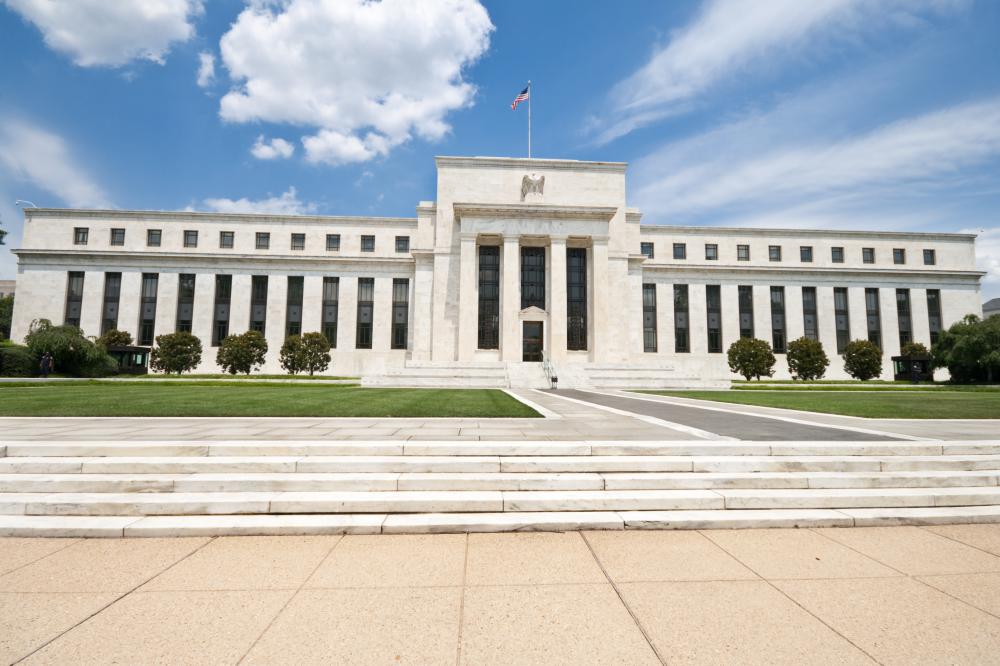At SmartCapitalMind, we're committed to delivering accurate, trustworthy information. Our expert-authored content is rigorously fact-checked and sourced from credible authorities. Discover how we uphold the highest standards in providing you with reliable knowledge.
What Is the Relationship between Inflation and Economic Growth?
Inflation and economic growth are linked terms with an often contradictory relationship. While the resulting interaction of inflation and economic growth is not always easily predicted, many economists believe that low, stable levels of inflation are preferable to high, unpredictable ones. After more than a century of modern economics, many studies have shown that most economies tend to grow at a faster rate when accompanied by low or moderate inflation levels. High levels of inflation, by contrast, are generally linked to a variety of problems, including slowed or halted economic growth.
Inflation usually occurs when money supply increases relative to the production or price of goods. For example, if a hamburger costs $5 US Dollars (USD), and a person has $50 USD to spend on lunch per week, he or she would be spending 10% of that money on the hamburger. However, if the person gets an extra $50 USD per week, and the hamburger seller raises his prices to reflect this wage increase, the same exact hamburger would cost $10 USD, yet still be the same percentage of buyer's income. In other words, the purchasing power of the dollar decreases, since the increase of money has affected both the buyer's income and the seller's prices.

Low levels of inflation and economic growth are often linked for several reasons. First, the existence of inflation allows central banks to maintain tighter control over interest rates. If a recession or depression has caused a central bank to reduce the interest rate to zero, they are unable to further adjust if the situation worsens. A low level of inflation guarantees that interest rates will remain above zero, giving the central bank the option to reduce interest as a means of counteracting an economic slowdown.

Another way that low inflation and economic growth are linked is through the maintenance of price stability. When inflation levels are low, they also tend to be more stable, meaning that fast, destabilizing shifts in either purchasing power or prices are less likely. Price stability generally encourages investments, since investors feel more confident about the future of the market.

High levels of inflation, by contrast, can sometimes wreak havoc on economic growth. When inflation levels are high, people may hoard goods for fear of shortages, causing market transactions to slow down and spurring the real possibility of shortages on essential goods. High inflation levels can also reduce the buying power of the dollar faster than labor markets can respond with wage increases, causing many workers with previously sufficient income to suddenly be unable to make ends meet.
Another potential danger of high inflation and economic growth is an increasing risk of market instability. Rapid or high inflation can destabilize price levels, making it far more difficult to accurately predict future market behavior. Price destabilization can be extremely dangerous, as investors may become discouraged, thus slowing the growth of new business investments and stock trading. Furthermore, the unpredictability of high inflation can make it difficult for economists, central banks, and governments to come up with viable plans to control or reduce inflation rates.
AS FEATURED ON:
AS FEATURED ON:













Discussion Comments
Economic growth could lead to inflation. It all depends on what is leading to economic growth. Some people don't realize that economic growth isn't always a result of more productivity in the country. Sometimes people are able to spend more money without actually working for it. It happens all the time when federal banks print money and pour it into the market. It also happens when people take loans from banks for purchases.
So if people are spending money that isn't really there, that results in too much consumption while there is low production. And that is the recipe for inflation.
@discographer-- I think that has been a controversial topic for some time now. Some economists claim that economic growth increases inflation, others say exactly the opposite.
I personally think that it all ties back to production. If production is high, I don't think that economic growth will lead to a lot of inflation because production lowers prices. If production is low, then prices go up resulting in inflation.
Considering that production is one of the requirements of a growing economy, it seems that economic growth would lead to lower inflation and not the other way around.
I thought that economic growth leads to higher inflation. Am I wrong?
I know that low inflation fosters economic growth, but as the economy grows bigger and bigger, isn't it inevitable for inflation to rise as well?
Post your comments